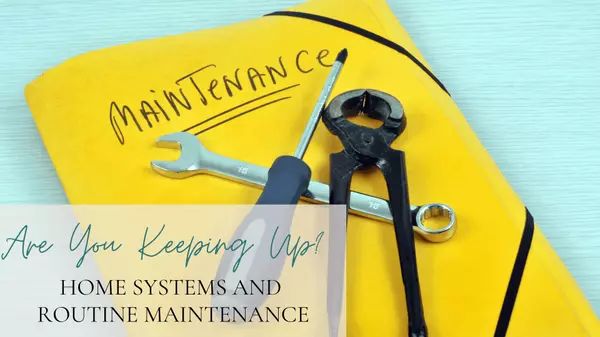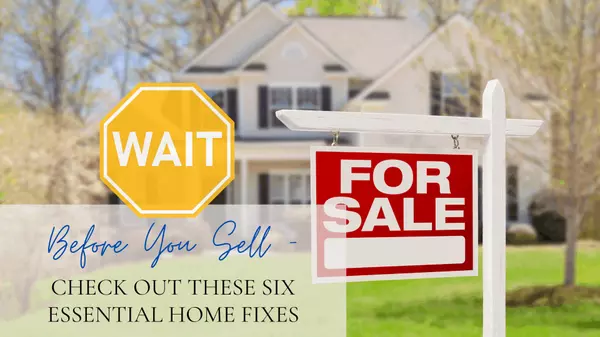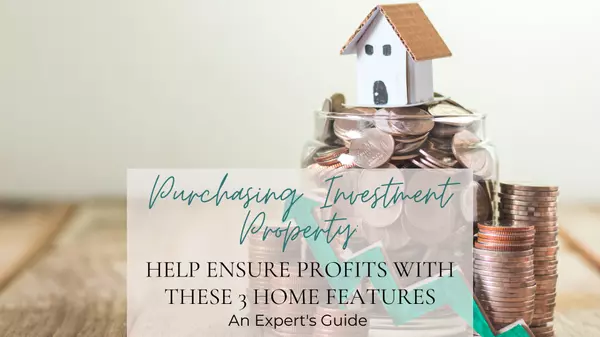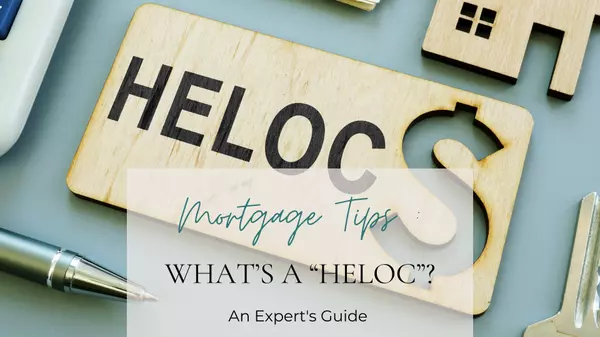Welcome Friends!
We're glad you're here!
The Endsley Team at Gulf Realty 30A is made up of locals who love sharing the beautiful Emerald Coast with other beach lovers! Read on for Local Travel Guides and Real Estate Tips from our trusted and experienced Agents.
CATEGORIES

Rebuilding Costs: A Fresh Perspective on How Much Homeowners Insurance You Really Need
When it comes to buying a home, there are many financial and planning responsibilities. Unfortunately, many of us lack the expertise when it comes to home repairs and insurance coverage, and that's where things can get tricky. Think about it, being a teacher, first responder, investment banker, or office staffer doesn't automatically make you an insurance expert or a construction guru. Yet, as homeowners, we're expected to carry a certain level of insurance coverage without truly understanding what it entails. Often, we end up settling for insurance that merely covers the purchase price or blindly follow someone else's advice. But those approaches could leave you in a tight spot when disaster strikes. Total Replacement CostsThere's a significant difference between your home's purchase price, assessed value, and the total cost to rebuild it from scratch. Take a moment to let that sink in. What you paid for your home and its assessed value have absolutely nothing to do with what it would actually cost to rebuild in the event of a total loss. Construction costs are determined by market prices, including building materials and labor expenses, which can vary from one region to another. Add to that the unpredictability of material shortages and shifting wages, and you've got a recipe for potential headaches. National averages for home construction range from $117 to $125 per square foot, but keep in mind that these figures are ever-changing. When you're rebuilding a home after a catastrophic event like a hurricane, tornado, flood, or fire, it's not just about the construction costs. There are other factors to consider. The damaged property needs to be cleared, and that comes at a cost. You might need to obtain building permits and licenses, which means additional expenses. And let's not forget about securing architectural blueprints and designs—another expense on your plate. Then there is the challenging permitting process, which might force you to find temporary accommodation while your home is being rebuilt. As you can see, there are plenty of unforeseen expenses. Consider "Specialty Buidling" CostsIf you happen to own an older home with high-quality materials that are considered specialty items today, you can bet that replacing them will be pricier than using common building materials. Think about those elegant rounded archways or charming plank-board floors—they add character but can come with a hefty price tag. It's crucial to take these factors into account when determining your insurance coverage.How Do You Recalculate Homeowners Insurance?It's time to roll up your sleeves and get down to some number crunching. Calculate the square footage of your home and compare it with average construction costs in your area. Don't forget to factor in those specialty items, permitting expenses, clearing and removal costs, and any other hidden surprises that might arise. As a rule of thumb, add an extra 10-20 percent to be safe. Surprisingly, insurance experts estimate that the average home is underinsured by as much as 22 percent! Imagine having to cover those overages out of your own pocket once the coverage limit is reached. To avoid that scenario, don't hesitate to consult reputable home builders or insurance experts who can guide you through this process. Remember, full coverage means accurately accounting for all the rebuilding costs. Your home deserves the protection it needs, and you deserve the peace of mind that comes with it. So, if you're curious about finding reliable home builders or insurance providers who can help you navigate these complexities, don't hesitate to Contact Us. We're here to support you every step of the way, ensuring that your home and your financial future are safeguarded. *Sources: https://www.insurance.com/home-and-renters-insurance/coverage/how-to-calculate-home-replacement-cost-value https://www.fixr.com/costs/build-single-family-house

3 Garage Staging Ideas to Transform Your Space
3 Garage Staging Ideas to Transform Your Space If you've made the decision to sell your home, chances are you've poured your heart into perfecting the interior. You've meticulously cleaned and staged your living room, bedrooms, and kitchen, striving for perfection. However, in the hustle and bustle, it's easy to overlook one crucial area—the garage. A beautifully organized garage is a game-changer when it comes to selling your home. Surprisingly, it holds more importance than you might think. According to the Active Spring Shopper's Report, over 30 percent of home buyers consider the garage as one of the most essential rooms in a home. That means 3 out of 10 buyers prioritize a well-maintained garage over even a gorgeous kitchen or an impressive bathroom. Don't worry if your garage has become a chaotic dumping ground. There's still plenty you can do to transform it into a showroom worthy of an auto dealer. Get ready to elevate your garage with these tips! Idea #1: Embrace Clutter-Free Bliss Garages have a knack for accumulating all the odds and ends, serving as the go-to spot for items without a designated place. Begin by removing everything from your garage, leaving a clean slate. To tackle the clutter, sort your belongings into three piles—keep, donate, and throw away. This process will help you make thoughtful decisions about what truly deserves a spot in your organized garage. Idea #2: Clean, Clean, Clean Now that you've conquered the clutter, it's time to give your garage a thorough cleaning. Start by scrubbing the floors and walls with a concrete degreaser and a trusty scrubbing brush. If your floors still bear the marks of past mishaps, consider adding a fresh coat of epoxy paint. Specially designed for concrete, garage floor epoxies can work wonders, making your flooring appear brand new. This attention to detail will undoubtedly impress potential buyers. Idea #3: Utilize Your Space The final step in creating your dream garage is to maximize its storage potential. Introduce various types of shelving to expand your storage options. Metal and wire shelving, storage benches, and sturdy metal cabinets are fantastic ideas to keep your garage in order. Additionally, think vertically by installing storage racks on your garage ceiling to take advantage of that often-underutilized space above. With these staging ideas, you'll transform your garage into an inviting space that captures buyers' attention. Remember, every detail matters when it comes to selling your home, and a well-staged garage can truly set your property apart. If you're eager to learn more about drawing potential buyers to your property, don't hesitate to Contact Us. We'd be thrilled to share further insights and help you make the most of your home-selling journey. Together, let's showcase your property's true potential! Resource: https://www.realtor.com/research/spring-home-shoppers/

How to Buy & Sell a Home at the Same Time - An Expert's Guide
Are you considering selling your home while also needing to purchase a new one? Wondering what options are available to you? Let's explore the possibilities together! 1) Make an offer on a home with a home sale contingency. A home sale contingency states that if you are unable to sell your home, you will not be obligated to proceed with the purchase. There is a stated deadline for the sale of your current home. If your current home doesn't sell by that date, either party can cancel the contract and you will get your Earnest Money Deposit back. The Pros: Your earnest money is protected. You can offer on your next home before selling your current home. The Cons: It can be difficult to get sellers to accept this contingency. In this area of Florida, if a seller accepts a home sale contingency they will often add a "Kick Out Clause". In short, a kick out clause means they can still accept other offers. Your offer can be cancelled if they get another offer they like and you are unable to remove the home sale contingency from your offer. You will also have to carefully line up your home sale and home purchases so that you can complete both successfully. 2) Get a Bridge Loan, Home Equity Loan, or HELOC (Home Equity Line of Credit). If you have a larger amount of equity in your current home, you may be able to finance the closing costs and down payment for your next home with one of these loan products. Talk to a trusted lender to see what your options may be. The Pros: You would not need to sell your current house before completing the purchase of your next house. The Cons: There will be additional financing charges. If you don't sell your current home in time, you may have two mortgage payments. 3) Purchase a new construction home. New construction homes often go under contract a few months before they close. The Pros: You have more time to sell your home. The Cons: Builders often will not accept a home sale contingency. If your current home doesn't sell, you will still be obligated to purchase the new home or else lose your earnest money and be in breach of contract. 4) Use a Cash offer company. These companies are relatively new to the industry, and their offerings and pricing structure vary. One such company that operates in the Florida market is Homeward. Homeward offers a "Buy before you sell" loan product where they will purchase your next home for you with cash. You buy it back from them once your current home sells. They charge you a pro-rated rent until you buy it back from them. When you do buy it back, they sell it to you at the same purchase price they paid, plus a 1.9% fee. For detailed information about this or similar companies, please contact them directly. The Pros: The purchase of your next home can take place before you sell your current home. The Cons: After the new home closes, you will be charged rent until you buy the home back. If it takes some time to sell your current home, it could be difficult to pay your current mortgage and the rent. 5) You find temporary housing. If one of the options above won't work for you, you may need to consider selling your home and move into temporary housing such as a month-to-month rental or a friend/family member's house while you look for your next home. The Pros: There will be no additional financing charges or fees. You'll be certain of your budget and timeline. The Cons: You have to move twice, and may have the added expense of moving costs and storage fees. 6) Ask for a Leaseback. If you'll be selling your home before you are able to move into your next home, you could try to negotiate a leaseback. A leaseback allows you to stay in your current home after closing day. Leasebacks are not common in this area of Florida, and if you request one you should be prepared to make the duration as short as possible. The duration and amount of rent you'll pay will be negotiated in writing before you close on your current home. Want to learn more? Our team of experienced agents will be glad to answer your questions! Reach out any time. Happy buying and selling friends! - Julie
Categories
Recent Posts















